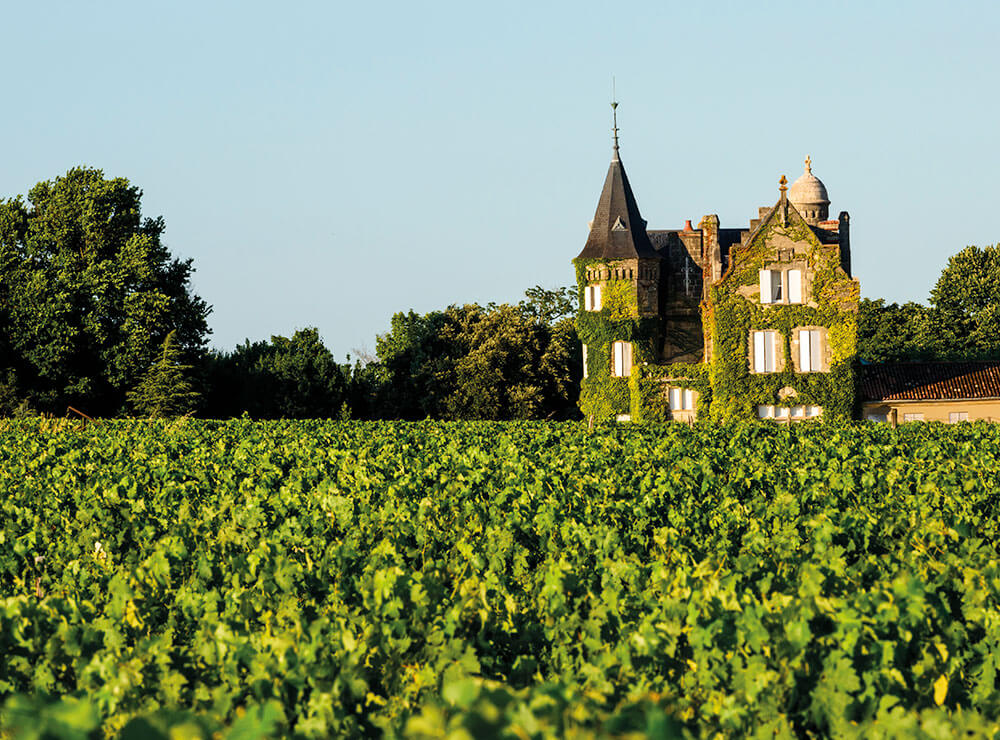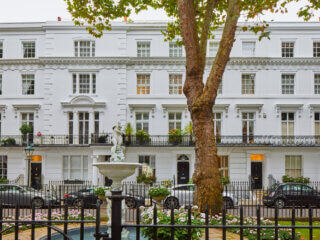
MAKE YOUR GRAPE ESCAPE TO FRANCE
06.12.18Finding the perfect vineyard takes persistence, timing and a nose for a good investment. Laura Henderson meets Alexander Hall of Vineyard Intelligence who offers some pointers on how to navigate the purchase process
Vineyard ownership requires a healthy dose of financial and emotional stealth: money, patience, hard work and, perhaps most importantly, passion. In reality, in the early years even covering your costs can in itself be a challenge with the risk of your vintage purchase being a considerable drain on resources if not well managed.
While there is no shortage of vineyard property for sale, finding an estate that suits your personal requirements as well as one that has the potential to become a viable business, requires a detailed understanding of the market and the factors that determine a successful winemaking operation.
The purchase of a vineyard property can perhaps best be viewed as the start of a journey; one that will lead to the creation of a multi-faceted business, which includes growing grapes, transforming them into wine, through to marketing and selling the finished product.
For those who like the idea of owning a vineyard but have neither the time nor the inclination to make and sell wine - there are alternatives, such as growing grapes and selling them to a winery under contract. While different approaches will appeal to different investors, it’s important to understand the economics of each approach as they offer differing scope for financial gain.
Arguably more than any other type of farming - an understanding of the geology associated with a particular vineyard is critical. The same grape variety can perform very differently depending on the soil type on which it is grown. The French use the word “terroir” to describe the unique environment in which grapes are grown, which includes the soil, topography, micro climate, and planting practices.
Choosing a good “terroir” will greatly increase your chances of producing good grapes and thus of making good wine, particularly in years when growing conditions are more challenging. In many parts of the world, notably the larger European wine producing regions of France, Spain and Italy, there are specifically denominated wine regions, such as the AOC (Appellation d’Origine Contrôlée) system in France.
Where a vineyard is located in respect of these denominated regions can have a significant impact on the reputation and price of the wines and on the price of the vineyards. In Bordeaux for example, prices start from as little as 7,000 Euros per hectare while in the most prestigious appellations they can exceed 2,000,000 Euros per hectare. While some vineyards are sold without any sort of accommodation, most will include vines, winemaking facilities and a property.
The latter range from modest cottages to multi-room châteaux and frequently offer better value when sold as part of a wine estate than if they had been sold as a stand-alone concern. The process of buying a vineyard is complex and timeconsuming but vineyard ownership does offer huge rewards. Buyers who are prepared to take their time and to seek out expert advice can look forward to a unique lifestyle that is full of variety and personal and professional satisfaction in many different forms.
BUY WISE
- Do understand that it will take time to find the right property. Many properties are privately listed with an individual agent. Very few appear on multiple listings. Wineries often do not want their names mentioned at all; a winery that is for sale risks losing its winemaker or distributor.
- Do start with the best vineyard that you can buy. A good winemaker or a good vineyard manager won’t work with a bad vineyard.
- Employ local experts to analyse the quality of the vineyard, the facilities and the wines; it could save you a considerable expense further down the road.
- Find out who the best local producers are in your chosen region. Where their vineyards are situated will tell you a lot about where the best soils and climatic conditions are to be found.
- Talk to importers and merchants in your target markets to get an idea of demand and pricing and use this information to refine your search.
- Winemaking estates need constant investment, so put savings aside in a sink fund for necessary improvements to the vineyard and winemaking facilities.
- Try to retain the current owner on a consultancy basis for an initial period to smooth the transition and assist in the learning process; they will know the business better than anyone.
THE PRICE IS RIGHT
- Many appellations are now upping their profile explains Martine Sahunet of Cabinet Bedin: “The Pays de Rhone has been quiet - but is now picking up. The Medoc is also active as is the Grand Libournais. We’ve had enquiries from as far afield as Canada and the States.”
- In the Gironde, which includes the prestigious Saint Emilion and Pomerol districts, in the past five years Chinese investors have bought upwards of 200 vineyard estates – mainly 20+ hectare estates in less prestigious areas for £1.5m-4m.
- Smaller estates with 3-12 hectares of vines are now selling for around £850,000, while full production vineyards of over 100 hectares start around £3.5m.
- Estate values, explains wine agent Yves Blanc are dictated by location, the quality of terroir and the wine produced, as well as the type of property and whether they are established producers for the wine: £750,000 is really a minimum budget for an estate, plus the finance necessary to purchase stock and operating costs for the first eighteen months.
Abode Affiliates
COPYRIGHT © Abode2 2012-2025






















































































































































































































